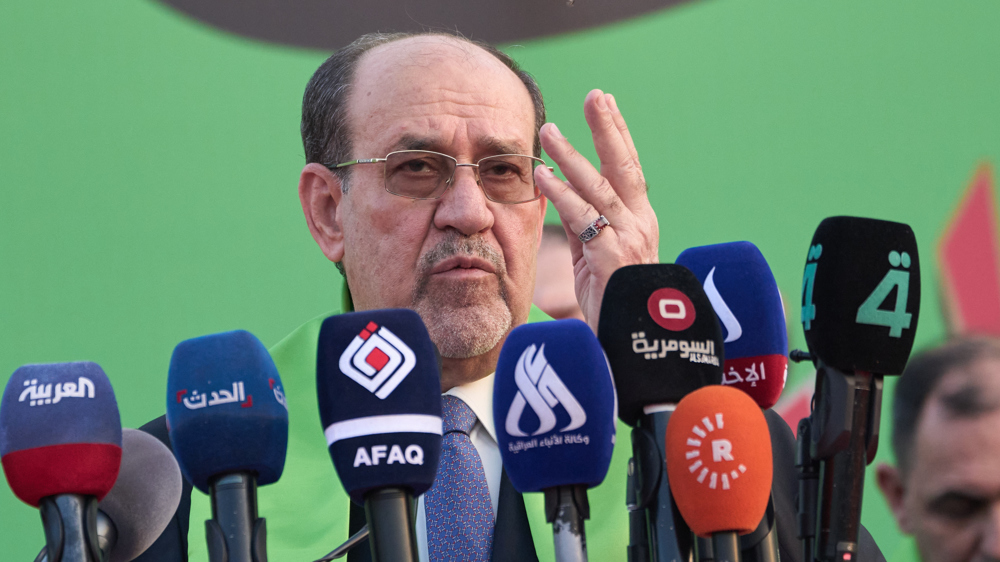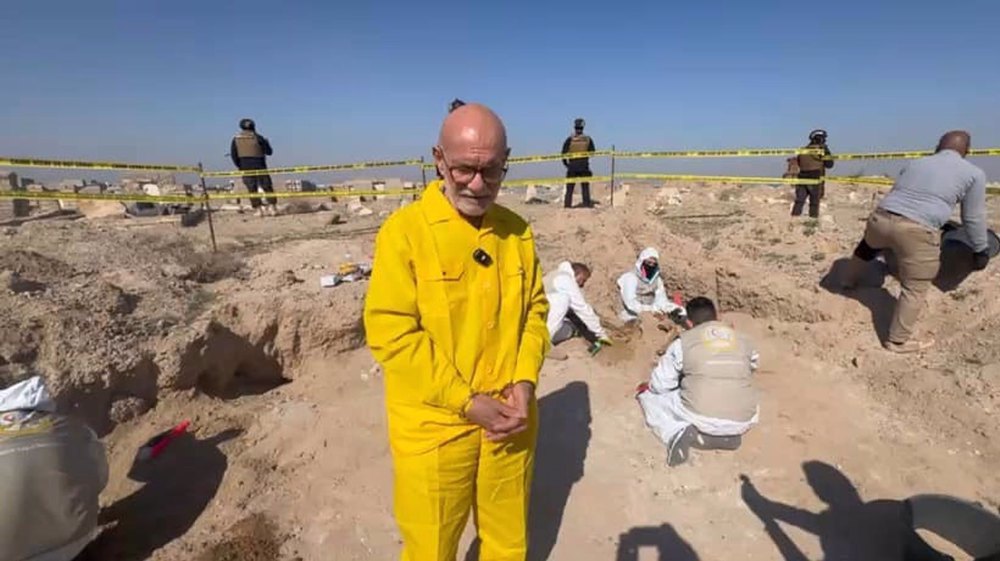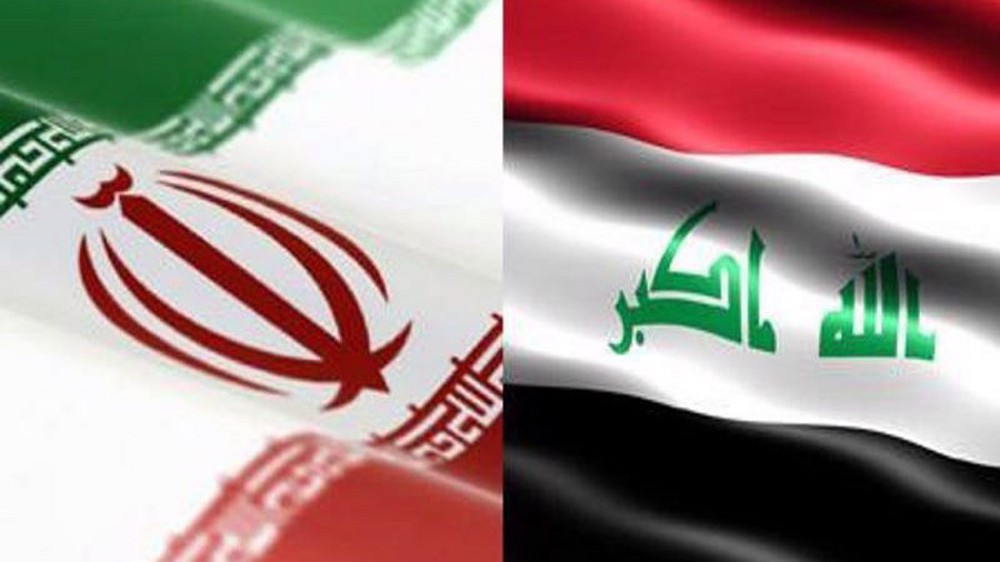Iraq to defend Kurdish people against threats: Premier
Iraq's Prime Minister Haider al-Abadi has reaffirmed the country’s determination to protect its Kurdish population against any threats, amid soaring tensions over the recent Kurdish independence referendum in the northern region of the country.
"To our people in the Kurdistan region: we defend our Kurdish citizens as we defend all Iraqis and will not allow any attack on them," Abadi tweeted in English on Saturday.
An Iraqi prime minister adviser, who spoke on condition of anonymity, told AFP that Abadi was referring to either an internal or external attack.
"We will not allow any harm to you and we will share our loaf of bread together," Abadi wrote in another tweet.
The Kurdistan Regional Government (KRG) held a non-binding referendum on secession from Iraq in defiance of Baghdad’s stiff opposition on September 25. Kurdish officials said over 90 percent of voters said ‘Yes’ to separation from Iraq.
The voting stations were dotted across the three provinces of Erbil, Sulaimaniyah and Dohuk that form the Iraqi Kurdistan Region as well as in the disputed bordering zones such as the oil-rich province of Kirkuk.
While much of the international community, including the UN, the European Union and Iraq’s neighbors, has opposed the referendum, Israel has been the only entity to openly support an independent Kurdish state, with Prime Minister Benjamin Netanyahu backing "the legitimate efforts of the Kurdish people to attain a state” of their own.
Political observers have warned that KRG President Massoud Barzani’s referendum scenario is in line with Israel’s policy of dividing the regional Muslim states.
In another tweet on Saturday, Abadi said Baghdad wants to have control over the country’s oil revenues “in order to pay Kurdistan Region employee salaries in full and so that money will not go to the corrupt."

Following a 2014 dispute over oil revenues, Iraq suspended payment of 17 percent of Iraq’s national budget to the Kurdish region. The transfers were worth nearly $12 billion annually and made up 80 percent of the region's budget.
Following the move, wages, including those of Kurdish Peshmerga fighters were slashed.
After the Monday referendum, the Iraqi government ordered the KRG to hand over its international airports in Erbil, and the city of Sulaymaniyah, as well as its border crossings.
It also asked the KRG to either cancel the result of the plebiscite or face potential sanctions, international isolation, and military intervention.
A ban on international flights into and out of the Iraqi Kurdish region also took effect on Friday.
The KRG has refused to either hand over the airports and land terminals or annul the outcome of the vote.
Iran elected vice-chair of UN Commission for Social Development
Historic gold for Iran as teen fencer wins World Cup title
VIDEO | Paris celebrates 47 years of Islamic Revolution in Iran
VIDEO | Killed twice: Palestinian-Americans and the price of silence
VIDEO | Pakistan slams US for publishing map depicting Kashmir as part of India
VIDEO | India-US trade deal faces protests from unions, opposition
VIDEO | 44th Fajr film festival closes with award ceremony in Tehran
North Korea warns of 'terrible response' to drone incursions from South












 This makes it easy to access the Press TV website
This makes it easy to access the Press TV website